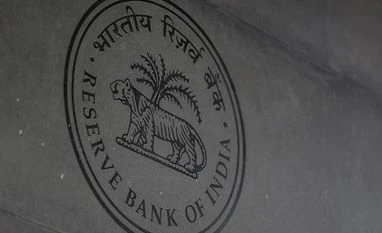With a majority of non-banking financial companies (NBFCs) relying on outsourced agents for loan recovery, the banking regulator’s tough stance on Mahindra & Mahindra Financial Services (MMFSL) could impact recovery for the entire sector in the near-to-medium term.
Moreover, as lenders will now deploy their own staff for such activity, their operation costs may go up, said experts.
Till the time the entities realign their collection model, the repossession of assets could slow down. For a quarter or so, the non-performing assets (NPAs) could remain elevated.
Last week, MMFSL said Reserve Bank of India’s (RBI’s) action would not materially impact its financials but would temporarily bring down the repossession of vehicles by about 3,000–4,000.
In the normal course of business, the company repossesses about 4,000-5,000 vehicles per month, using third-party agencies and its own employees.
The regulator directed M&M Financial not to outsource recovery activity after a 22-year-old pregnant woman died in Jharkhand’s Hazaribagh while trying to block loan recovery agents from taking away her father’s tractor. She was crushed under the vehicle.
The loan was taken from MMSL. Incidentally, Anand Mahindra, chairman of the Mahindra Group, is on the central board of the RBI.
In June, RBI Governor Shaktikanta Das had warned of stringent action against lenders for harsh methods used by recovery agents.
“Recoveries via own employees may keep the cost-to-income ratio elevated. With this ban, MMFS may witness an increase in gross NPAs as the pace of recoveries slows down,” ICICI Securities had indicated in a note.
According to Karthik Srinivasan, group head — financial sector ratings — ICRA, entities have to ensure that they have a higher proportion of their own collection team rather than relying on external agencies. The operational cost of such entities may go up.
“Some entities have a very strong in-house collection mechanism while others have outsourced some part of their collection activities to third party entities. Till the time the entities realign their collection model, the repossession of assets could slow down. Maybe for a quarter or so, NPA numbers could remain elevated,” he said.
Shriram Transport Finance does not outsource its repossession activities. It had stopped the practice around 20 years back and all the repossession activities are done in-house. Cholamandalam Finance has around 13,000 in-house employees for collection and recoveries and only 1,500 external agents.
“In the interim, we might see some slowdown in the recovery process as NBFCs look to ensure that their processes are in adherence to laid down norms. They must ensure that their third-party agents are following the required code of conduct,” said Krishnan Sitharaman, senior director and deputy chief ratings officer, CRISIL Ratings.
“I don’t see any major impact on generation of fresh NPAs as generally the recovery process kicks in only after default occurs or an account is recognized as NPA. That said, we could see some delay in recoveries and consequently reduction in NPAs in asset classes and customer segments where third party recovery agents are used,” he said.
“Industry thinks this is a very harsh step taken by the regulator. It is a one-off unfortunate case. The RBI could have asked the management of the company to take action or could have penalized them. But this action just compounds the problem. This will have an impact and we might see the repossession numbers may come down. The industry is apprehensive and may go slow on the repossession activities,” said an industry insider, on the condition of anonymity.
Experts said repossession of movable assets in case of default is something that has been going on for many years because traditionally NBFCs were asset-backed lenders. It is a legally-accepted recovery tool globally, including India, under The Motor Vehicles Act. Repossession of vehicles is always the last resort after all other efforts to recover dues are exhausted.
“Banks and NBFCs have thousands, and in some cases, lakhs of loans given to individuals against the prime security of movable assets like vehicles. We cannot expect these entities to employ so many people for repossession. Outsourcing repossession is mainly driven by practicality,” said Raman Aggarwal, director, Finance Industry Development Council, an industry body for NBFCs.
“Recognising the need to outsource, RBI has prescribed detailed guidelines on outsourcing for banks and NBFCs. The onus of behaviour of the outsourced agent lies with the regulated entity. Secondly, the recovery mechanisms available to NBFCs are limited. NBFCs can use arbitration and SARFAESI Act but with riders. So, repossession becomes the alternative option to prevent the account from turning into an NPA,” he said.
RBI has been concerned with coercive methods used by outsourced recovery agents leading to harassment of borrowers. Last month, the RBI issued directions to regulated entities asking them to ensure that borrowers do not receive phone calls before 8 am and after 7 pm.
It said, regulated entities and their agents must not resort to intimidation or harassment of any kind, either verbal or physical, against any person in their debt collection efforts.
Unlock 30+ premium stories daily hand-picked by our editors, across devices on browser and app.
Pick your 5 favourite companies, get a daily email with all news updates on them.
Full access to our intuitive epaper - clip, save, share articles from any device; newspaper archives from 2006.
Preferential invites to Business Standard events.
Curated newsletters on markets, personal finance, policy & politics, start-ups, technology, and more.
)